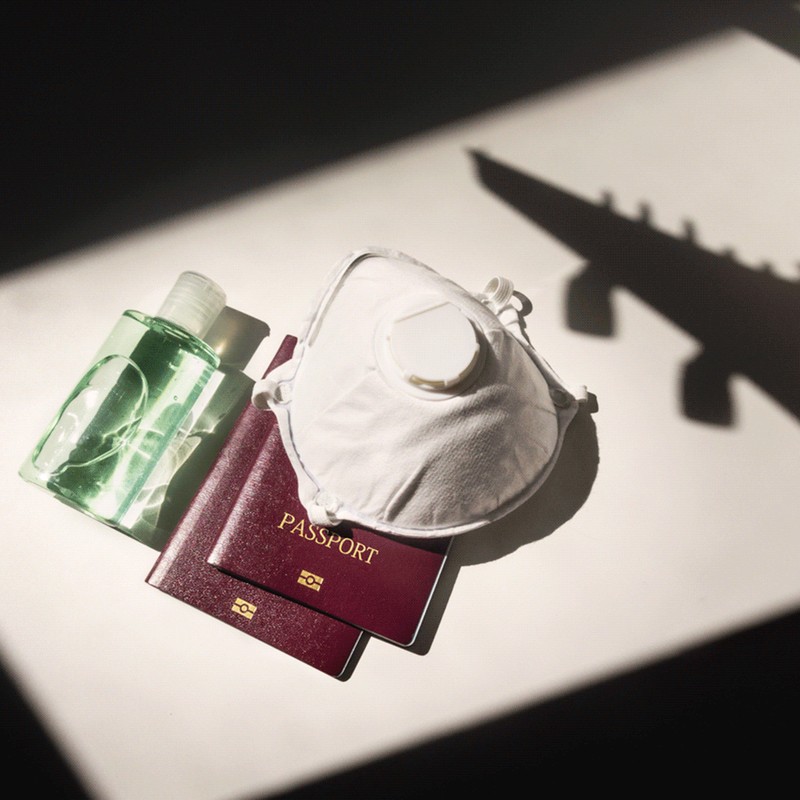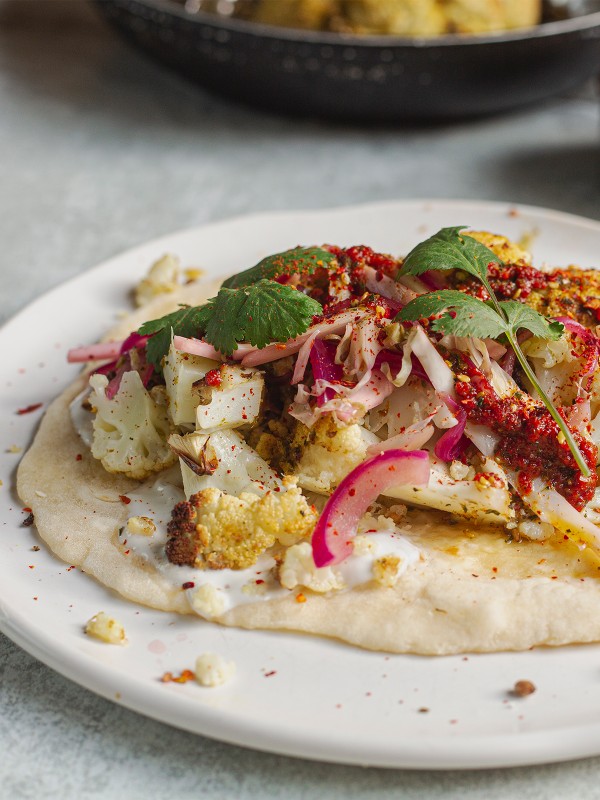
Covid-19: How To Stay Safe On A Plane
Plan Your Transfer
“In all the excitement of heading to the airport for the first time in a year, it’s easy to forget there may be differences to the transfer process. Of course, all taxis require travellers and drivers to wear masks, but you should also remember that it is not permitted to share a taxi ride with anyone outside of your household – instead, you should arrange separate transport if travelling with family or friends outside of your household. Whether travelling in a taxi or heading on a train, allow extra time to get to the airport and ensure you’re wearing a mask at all times.” – Yvonne Hobden, head of product & marketing, Flight Centre
Allow Time To Get Through Customs
“Gone are the days when travellers could turn up to the airport at the last minute and rocket through customs. Be sure to allow enough time to get through security as social distancing and fewer staff may lead to longer queues. The rule of thumb used to be to allow two hours for travel to the continent and three hours for long-haul journeys – I suggest adding an extra 90 minutes of wiggle room. You’ll also be asked to have your temperature taken ahead of travel, so be prepared for this too.” – Yvonne
Upgrade To The Lounge
“If you’re particularly nervous about maintaining social distancing in airports, see if you can update to lounge access. Airport lounges are the perfect way to destress before a flight. Last year, many airports adapted their lounge areas in light of Covid-19 – for example, buffets were swapped with individual dishes and perspex screens were installed to protect guests.” – Yvonne
Keep Contact To A Minimum
“It might sound obvious, but it’s incredibly important to have as little contact as possible with other people. Of course, you’ll still come into contact with cabin crew and airport staff, but you might want to reconsider perusing the duty-free aisles or heading to more than one restaurant. Do not hand your passport to the airport staff for inspection – instead, hold them up at the correct pages so they can inspect it without needing to touch it. If possible, check in and print off your boarding pass ahead of the flight, which will also minimise how many items you may need to pass to someone else. Most airlines now offer online check-in, so if there’s an option to get your boarding pass and travel documents on your phone or on an app, it’s wise to do so.
“It’s also a good idea to go to the toilet immediately before boarding the plane. This will cut down the chance that you will need to use the aeroplane toilets while in the air, meaning you won’t need to move around the cabin as much, minimising the risk of coming into contact with others. The less you move around on the plane, the safer you are likely to be. Reserving a window seat means that you are clear of the aisles, so you won’t be in close contact with people moving up and down the plane.” – Hussain Abdeh, clinical director, Medicine Direct
Wear A Mask At All Times
“It’s essential that you pack a few face masks as you’ll be required to wear one for the duration of your time in the airport and onboard your flight. Depending on the length of your flight, you might like to bring several. According to the World Health Organization, you should change your mask every four hours, which is the point at which mask tolerance decreases. Once it starts becoming uncomfortable, there’s a tendency to touch it, which can increase the risk of contamination, and once dampened with breath the mask retains fewer particles. Plus, it’s always nice to have a fresh new mask to change into when you land for your onward journey.
“If you can, eat before getting on the plane and once you are at your destination to minimise the frequency with which you need to remove your mask. Practise rigorous hand hygiene and consider wearing disposable plastic gloves when you visit the washroom.” – App In The Air
Pack The Essentials
“Make sure you bring hand sanitiser but remember that it will need to be in bottles of 100ml or less, as security measures on liquids still applies. Though airlines are rigorously cleaning their aircrafts for your safety, it’s also worth bringing some antibacterial wipes to clean down your seat area once you’ve boarded. Vinyl gloves are also a good idea, as is a touchless tool for opening doors. Ensure you have these in both your hand and hold luggage, so you have extra if needed.” – App In The Air
Know What To Expect
“While most flights encourage passengers to maintain distance in the terminal, it’s unlikely that airlines will implement social distancing on board. However, they are doing all they can to maintain high levels of safety and cleanliness. For example, British Airways is cleaning all its planes thoroughly between flights, while onboard filtration systems filter air every two to three minutes, removing bacteria and viruses with 99.9% efficiency – the same standard used in operating theatres. It’s also worth noting that you might now have to pay for cabin luggage. Check the terms and conditions of your airline before arriving at the airport to avoid a hefty fee for last-minute additions.” – Yvonne
Follow The Airport Guidelines
“For your own safety, you must follow the advice and regulations at the airport. Every airport will operate in a slightly different way but will have measures in place to reduce the risk of Covid-19 transmission. This will typically include distancing measures, the use of one-way systems, and disinfection points. To avoid confusion and minimise infection risk, it will be helpful to familiarise yourself with the procedures before you arrive at the airport.
On the aircraft, there may be changes to the food and beverage service. Some airlines may run reduced services, in particular on shorter flights. Also, the access to aisles and bathrooms may be controlled to reduce contact and the risk of transmission. Remember, due to the filters and the air flow, the risk of Covid-19 transmission is relatively low while you are on a plane – the main transmission risk is from crowded situations at the airport, in particular during security checks and when you board and leave the plane, so be sure to maintain distance where possible.” – Martin Michaelis, professor of molecular medicine, University of Kent
Ensure Children Follow The Rules Too
“For children, the same rules apply as for adults. It’s largely a myth that children are less likely to become infected and transmit Covid-19. Children become infected in exactly the same way as adults, and their risk of infection may even be higher because they are less careful. This is especially true for small children who have a greater tendency to touch things and to put things into their mouths. Check the rules for your chosen airport and airline before travelling, and ensure children always wear a mask, regularly sanitise their hands, and keep contact to a minimum. If travelling with toys or iPads, ensure these are regularly disinfected too.” – Martin
Only Travel If You Feel Comfortable
“Many of us have not travelled for many months and that first trip may provoke some anxiety. Ensure that you travel for the right reasons and you feel comfortable with the destination you are travelling to. Nothing that we do is without risk, but following the rules and getting a Covid-19 vaccine when offered will put you in the best position to enjoy safe air travel.” – Dr Rachel Ward, GP
“Ultimately, if you feel anxious about travelling, don’t do it. If the enjoyment you gain from your holiday does not outweigh your concerns, you’ll be better off staying at home or going on holiday in the UK instead. If you do go on a holiday, don’t drop your guard. If you behave sensibly, you will be able to minimise the risk of catching Covid-19, but there will always be some risk travelling abroad. Analyse each situation yourself, and take responsibility and accountability for your own actions. Will you come into close contact with someone outside your household who may be infected? Are you going to touch something that may be contaminated? Is there an opportunity to wash or disinfect your hands after you have touched it? Will you be surrounded by responsible individuals? Which risk are you prepared to take for a certain activity, not just considering yourself but also others who may be affected by the consequences of your decision? Ask yourself these questions to stay as safe as possible.” – Martin
*DISCLAIMER: Travel restrictions are changing daily, so please check the latest government advice before you book anything. Visit Gov.uk for more information.
CREDITS: ISTOCK/ZUZACA
DISCLAIMER: We endeavour to always credit the correct original source of every image we use. If you think a credit may be incorrect, please contact us at info@sheerluxe.com.





